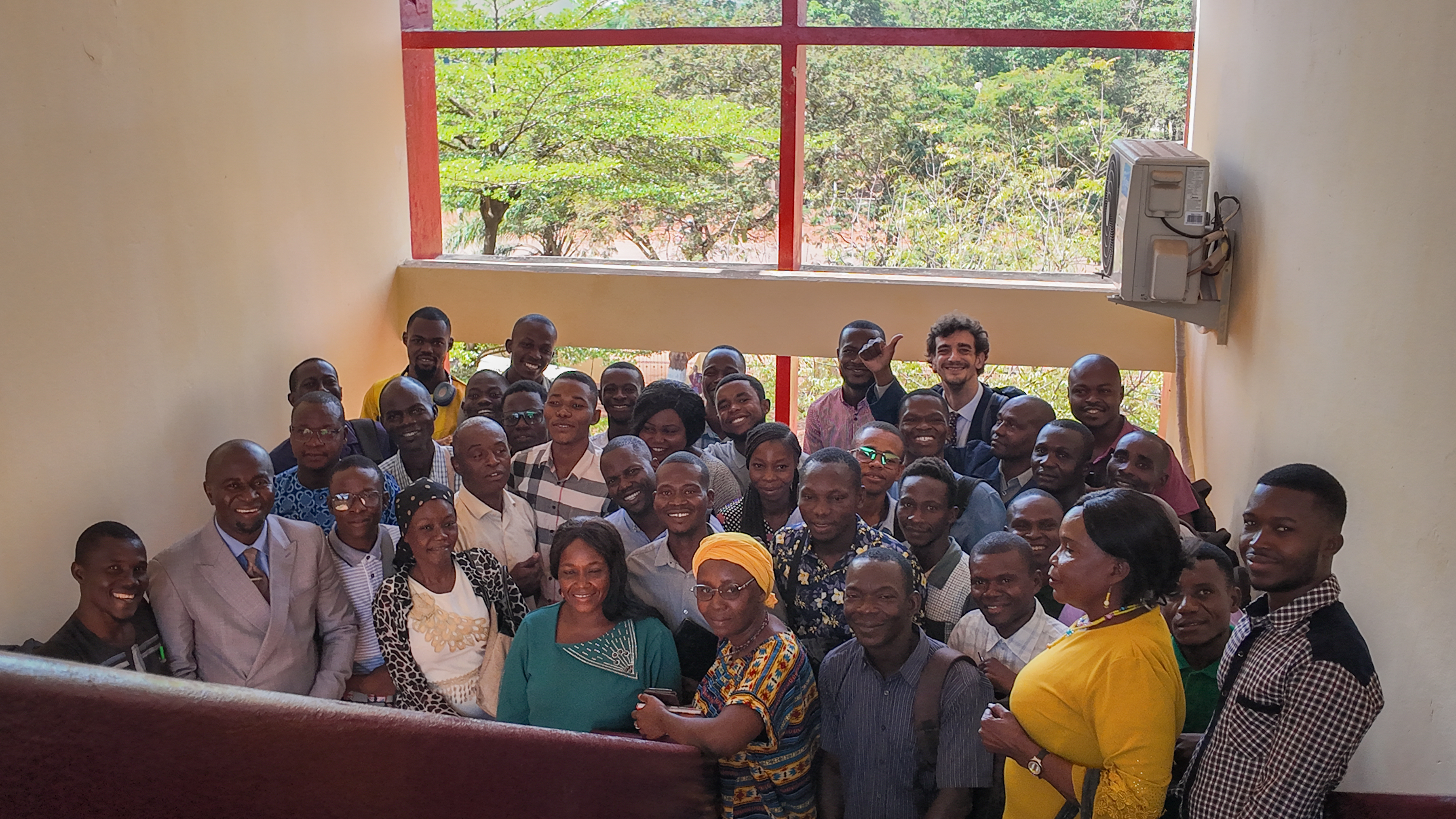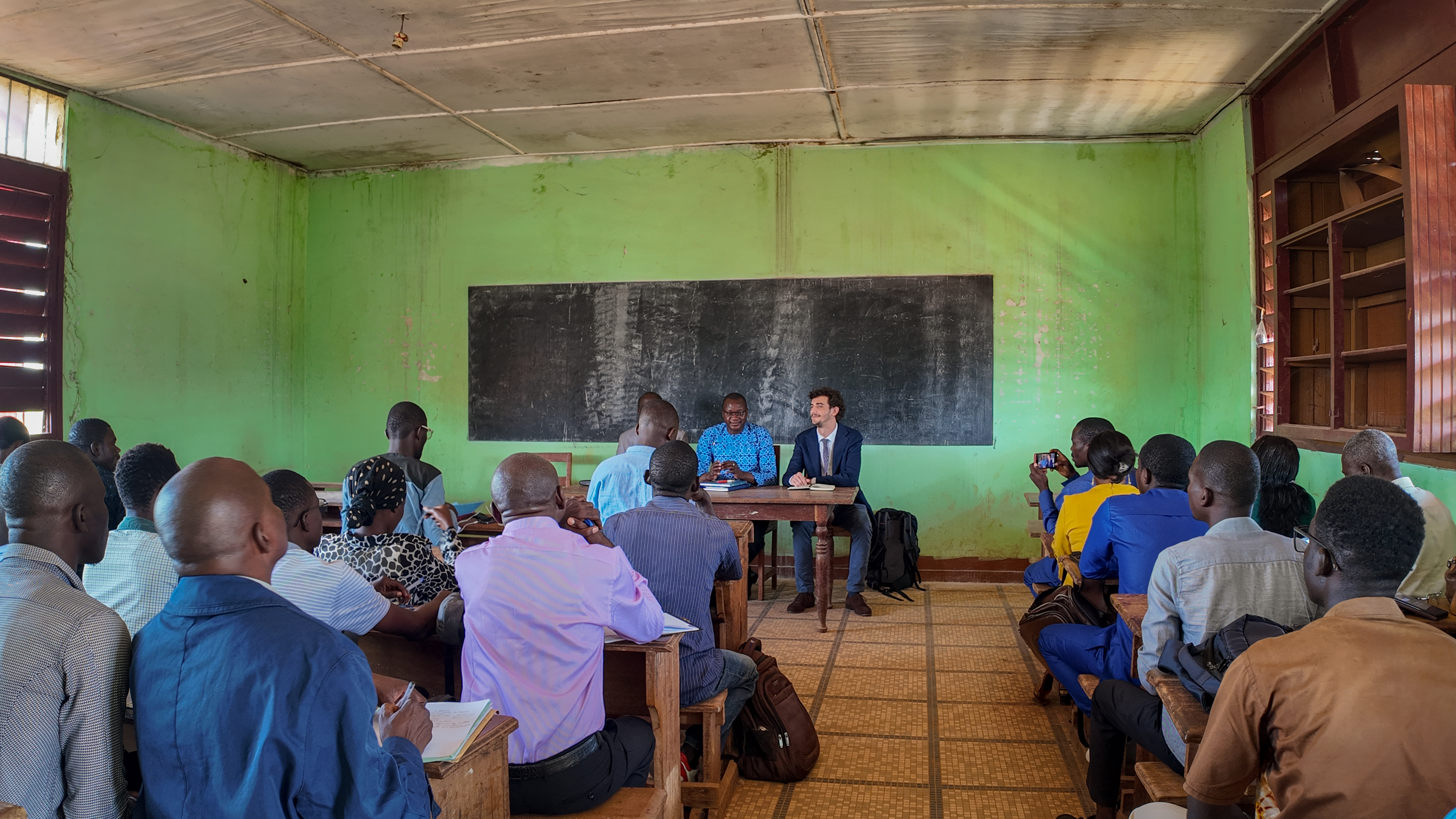
As the Sustainable Development Goals (SDG 4) highlights, education is central to achieving sustainable development and peace. In alignment with this framework, KAICIID’s 2024-2027 Strategic Plan prioritizes the promotion of Interreligious Dialogue (IRD) and Peace Education as a cornerstone of conflict prevention and societal transformation. With this vision, KAICIID formalized its collaboration with the University of Bangui to advance the teaching of IRD as a critical tool for conflict resolution in the Central African Republic (CAR).
Historical Context and KAICIID’s Intervention
KAICIID began its intervention in the Central African Republic in 2016, addressing the root causes of the civil war that erupted in 2013. This conflict was characterized by significant interreligious and ethnic polarization, leading to widespread division and violence. KAICIID’s initial efforts focused on empowering local stakeholders, including religious and traditional leaders, journalists, and local authorities, to establish inclusive peace structures. These structures fostered interreligious coexistence and laid the groundwork for rebuilding trust and collaboration among diverse communities.

Photo: Prof. Boris Yakoubou, KAICIID Field Expert; Professor Augustin Jeremie Doui-Wawaye – Dean Faculty of Law and Political Science at the University of Bangui and Pietro Siena, KAICIID Programme Officer, engage with students from the Conflict Resolution Master to listen to their expectations and experience.
Progress Towards Peace
Years of sustained efforts by local actors, with support from international organizations such as KAICIID, have resulted in a state of relative peace in the CAR. A notable example of this progress is the reopening of the PK5 district in Bangui. Once a restricted area due to its association with the Muslim community, PK5 is now accessible to people of all faiths and ethnicities, symbolizing a significant milestone in rebuilding inter-communal relationships.
Adapting Interventions to Changing Contexts
Recognizing the evolving needs of the CAR, KAICIID has transitioned its focus to education as a means of consolidating peace. KAICIID introduced IRD as a conflict resolution methodology within academic curricula by partnering with the University of Bangui. This initiative seeks to:
Building Capacity and Promoting Research
In 2023, KAICIID trained five professors from the University of Bangui on IRD theories and methodologies. These professors subsequently developed a comprehensive syllabus, which, in its first iteration, enrolled 88 students. These students are now preparing to research IRD initiatives in collaboration with selected peacebuilding actors. This research, supported by KAICIID, aims to generate evidence on the positive role of religious leaders and interreligious dialogue in conflict resolution and coexistence.
In conclusion, KAICIID’s collaboration with the University of Bangui exemplifies the transformative power of education in post-conflict societies. By equipping students and educators with the tools to promote tolerance and inclusion, the initiative contributes to building a more cohesive and peaceful CAR. Through this project, KAICIID reaffirms its commitment to leveraging education as a catalyst for sustainable peace and development.